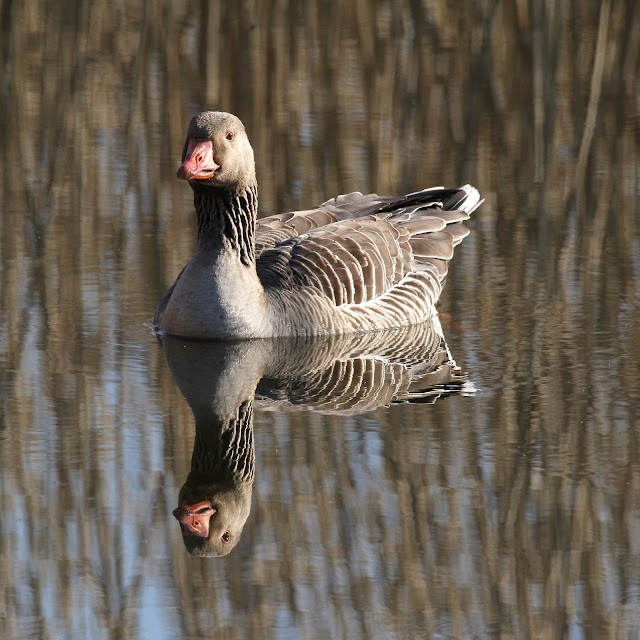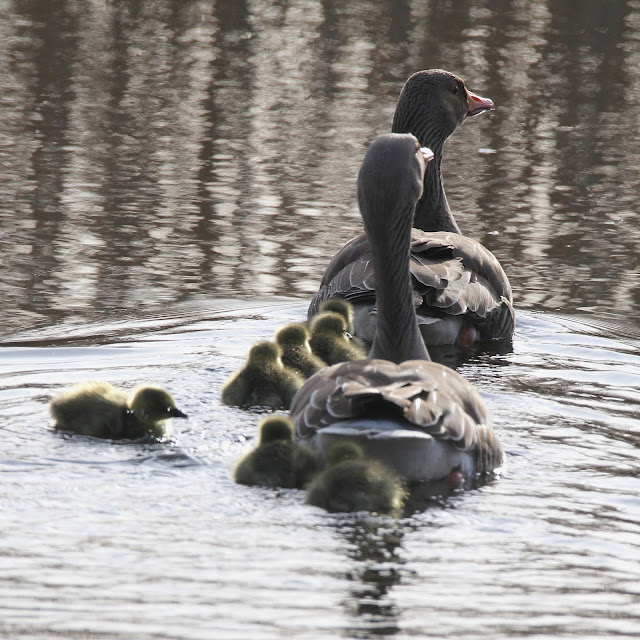The sexes are said to look alike but the birds do vary in colouring. These two have different coloured beaks and lines around their eyes.
This bird has been sitting on eggs for the last month or so but the eggs eventually hatched this week.
The father has joined in the responsibility of keeping the goslings safe. There is always an outlier but eventually he fell into line.
The recent history of the greylag is a success story. In Thomas Bewick's time the Grey Lag Goose was common.
He wrote "This species is common in this country, and although large flocks of them, well known to the curious, ... are seen regularly migrating southward in the autumn, and northward in the spring, yet several of them are known to remain and breed in the fens of Lincolnshire and Cambridgeshire, and, it is said, in various other parts of Great Britain.".
Almost 100 years go there was a small breeding population confined to the north west of Scotland, boosted in the winter by visitors from Iceland. Between 1930 and 1970 hand-reared birds were released in many parts of Britain, mainly by wildfowlers, and flocks spread across most of the country. Since then numbers have continued to increase. Native British birds, Icelandic visitors and reintroduced (feral) birds are indistinguishable in the field.
The maps from the BTO Bird Atlas show the increase in the breeding range over the last 40 years.
There has also been a large increase in the winter population.
You can watch a BTO video on identification of grey geese here. Listen to Sir David Attenborough's BBC Radio 4 Tweet of the Day on greylag goose here.




















Great blog Chris! I once read that their name derives from them 'lagging' behind when other geese depart for breeding grounds.
ReplyDeleteThanks Alan. Glad you like it. I also read that the greylag was the last goose to go on migration but wasn't sure if that is a recent guess or a true explanation for the name.
DeleteReally cheering to see a numbers increasing success story!
ReplyDelete